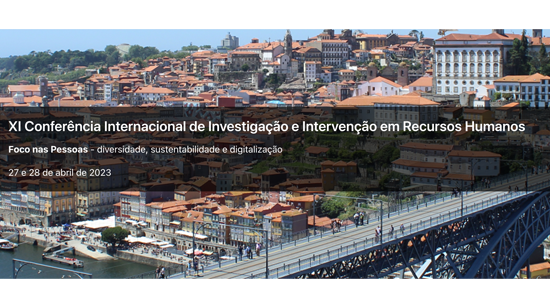Artificial Intelligence, Work Organization and Pandemic Context: Comparisons On The Use of Virtual Assistants by Brazilian and Portuguese Banks
DOI:
https://doi.org/10.26537/iirh.vi11.5249Palavras-chave:
Artificial Intelligence, Work Organization, Human Resources, banks, Brazil-PortugalResumo
Changes arising from Digital Transformation (DT) are on the contemporary agenda. This includes Artificial Intelligence (AI), such as Intelligent Virtual Agents (IVA) that mimic human communication. The frontier is generative and ethical, present in ChatGPT-OpenAI (November/2022). First, we sought to compare contexts and perceptions of 53 workers on the use of IVA, in 50 branches of 8 banks in Belo Horizonte (Brazil), Porto, Braga, Lisbon and Cascais (Portugal), from 2018 to February/2020. Second, these results were compared with complementary documents and digital channels, available from March/2020 to January/2023, after the onset of the Covid-19 pandemic. Under a descriptive qualitative approach, we opted for the multiple case study strategy, intentional selections, collections with a semi-structured script, primary and secondary content analysis, and longitudinal observations. In the first phase, the perception of Brazilian respondents (1 bank) indicated that IVA solves a majority part of the demands (less complex), while call center attendants solve a minority part (more complex); there is anguish on the part of employees due to the institution hindering access to attendants; the routine use of the IVA generates learning; there was a perception of reshuffling or layoffs in the call center. Although internet banking and mobile applications have grown in banks in both countries, only Brazilian respondents perceived IVA in these tools. However, later documents indicated investments by a Portuguese bank, among the seven largest APB members, in chatbot. In Brazil, this technology proved to be present and dynamic in the five largest FEBRABAN institutions and also in the Central Bank. In contrast, the second phase of the research demonstrated advances in the use of IVA in five of the seven largest Portuguese banks. In addition, a general expectation about potentials such as cost reduction, increased efficiency and security, by the diffusion of algorithms in banking processes. In the timeline, the year 2020 marks the intensification of IVA use in this Portuguese segment. Comparing, by 2019, in Brazil, there is evidence on the use of Din (Central Bank), Virtual Assistant of (Caixa), Bia (Bradesco), Virtual Assistant of (Itaú), Virtual Assistant of (Bank of Brazil) and Sara (Santander), while in Portugal there was the launch of Caixa (CGD). Digital banks excluded. From March/2020 to January/2023, in Portugal Marco (CTT), Max (Millennium), M.a.r.i.a (Montepio) and Sandi (Santander) were launched, while in Brazil Gente (Santander). Institutions that defend the paradox that this technology humanizes attendance. Aspects that show changes in Work Organization (WO) and Human Resources, with evidence of the precarization of work and, at the same time, relevance of individual competencies. It is recommended, investigations on the use of IVA, opportunities and job precarization; perceptions of Portuguese workers in banks; effects of AI provided by startups on jobs, careers and HRM practices; and correlated effects arising from the Covid-19 pandemic. Supported by FAPEMIG, this study collaborates to fill gaps on empirical-theoretical investigations related to AI, WO and HRM in Brazilian context compared to other countries, as well as warns that DT advances need to be guided by ethics and permeated by social and environmental transformation
Downloads
Publicado
Como Citar
Edição
Secção
Licença

Este trabalho encontra-se publicado com a Licença Internacional Creative Commons Atribuição-NãoComercial-SemDerivações 4.0.


